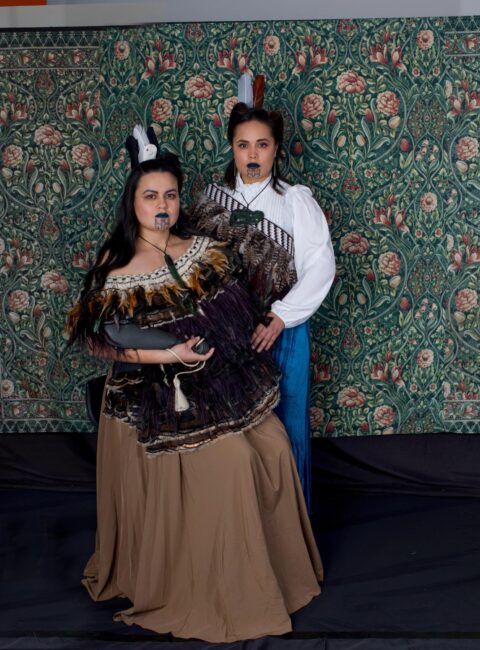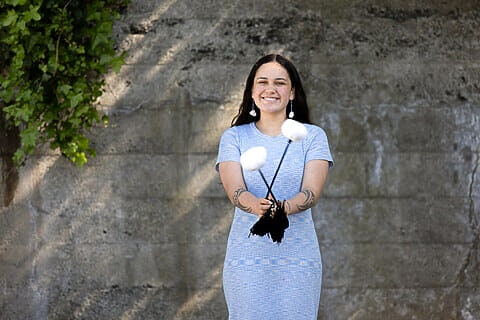Image credit above: Ebony Lamb
Eleanor Catton, youngest-ever winner of the Man-Booker Prize, for The Luminaries, has just produced her third novel, a gripping, hand-on-heart literary thriller titled Birnam Wood. In an interview with Anne Kennedy, Catton speaks with characteristic intensity about the power and importance of fiction, ‘the moral artform’, in our anxious times.
It’s been ten years between drinks, but the decade has been busy for Catton, with big screenwriting projects, voracious reading, a relocation to the UK with her husband Steven Toussaint, becoming a parent (‘I can’t faff around like I used to’), and starting work on a fourth novel. As she discusses her life and work there is perhaps a new sense of urgency in her belief in fiction, not just the power of it but the necessity of it in our anxious times. ‘Fiction is the moral art form: it can explore not only actions and their consequences, but intentions. Fiction is necessary to a moral life.’
Catton makes a compelling case for her own and her readers’ engagement with fictions – and not just novels but games as well, she stresses more than once. Fictions can guide us in ‘facing down the existential threats that lie ahead’. They also, Catton points out, make us feel happy and hopeful, which are important states of mind in ‘perilous times’. In a jokey tone, Catton insists that apart from writing fiction, ‘I don’t know how to do anything else’.
Not true, of course. In the last few years, she has written two major screen works, firstly the 12-part BBC television adaptation of The Luminaries, followed by the adaptation of Emma, which stars Anya Taylor-Joy of Queen’s Gambit fame – she of the yellow coat. Catton says she starting working as a screenwriter ‘largely as a response to the intense exposure of the post-Booker years, which I found quite overwhelming and self-alienating’.
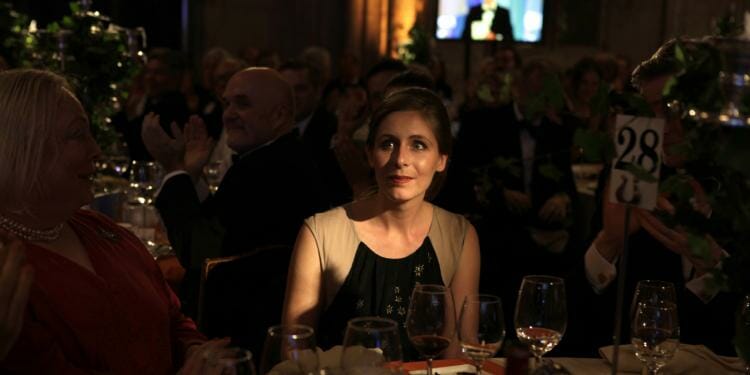
It’s worth pausing for a moment to remember the literary sensation and innovation that was The Luminaries, a ‘mass confabulation’ (Bill Roorbach in the New York Times) garnering mass praise ( and yet Catton failed to win the highest book award in Aotearoa that year) and readers may remember the ordeal that the then 27-year-old Catton was subjected to in sectors of the New Zealand media for daring to have a political opinion – which has perhaps turned out to be a sober harbinger of things to come for influential women.
But Catton found that she enjoyed the collaborative nature of screenwriting, and the task of writing to a brief. This aspect came as a surprise, after years of working alone writing novels. But she also relished the structured story approach to screenwriting, and this had an effect on the novel she would turn to next: ‘Inevitably, I brought a lot of what I’d learned as a screenwriter to Birnam Wood.’ Returning to fiction, Catton rediscovered ‘all the things that fiction does best’. She says she now has a greater appreciation of both forms.
Birnam Wood is an eco-thriller, a surprising new venture in genre for Catton – although perhaps not so surprising when one considers her habit of exploring new literary directions. Her first publication The Rehearsal (made into a film by Alison Maclean) was a pared-down novella about sexual harassment and rite-of-passage, then the lush yet uber-controlled literary whodunnit that was The Luminaries. Catton has previously discussed her dislike of the boundaries between ‘literary’ and ‘genre’ fiction. Hence, a gripping, page-turner of a literary thriller.
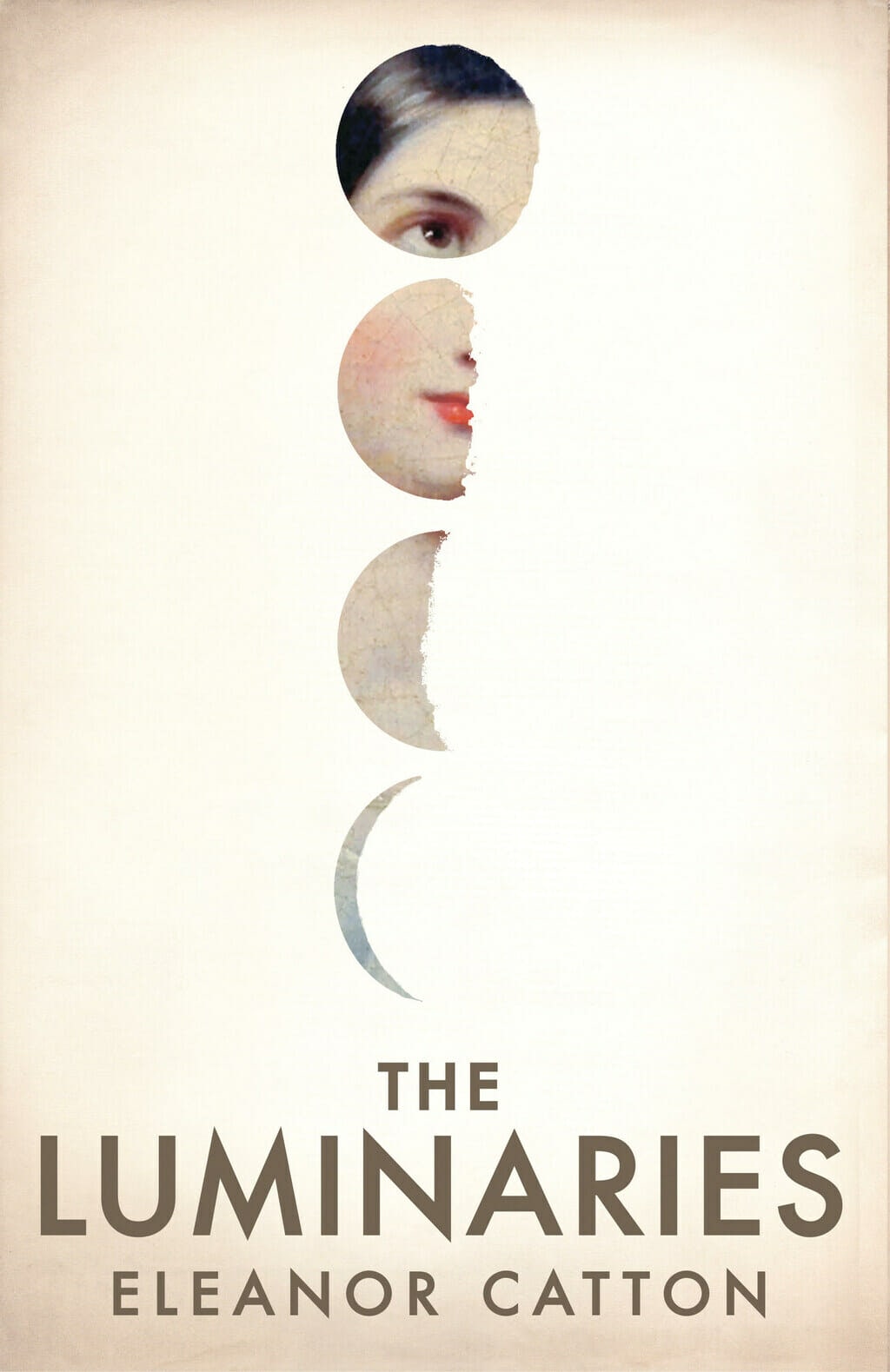
Catton liked the challenge of the cross-genre, its pure thrill, its what-happens-next component: ‘A thriller has to be thrilling.’ But more than that, says Catton: a thriller looks towards the future, an important quality for our times: ‘When people despair, politically and personally, they stop caring what happens next. I didn’t want Birnam Wood to be complicit in any form of apathy or nihilism.
‘I wanted it to be a book of action, a book of connection and conversation, a tragedy, yes, but one where human actions really matter, both for better and for worse’
In Birnam Wood, Catton critiques some of the positions we take for granted in contemporary society, such as ‘smart’. Quoting Michael Sandel’s The Tyranny of Merit, Catton insists being clever isn’t the same as being moral: ‘We’re human beings! If we stopped being moral creatures, we’d stop being human! ‘Likewise the term ‘problematic’: ‘What kind of a word is that? It’s so anodyne, so safe. It’s a way of identifying a moral issue without having to take a moral position—in fact, without even using moral language at all. I hate ‘problematic’. Take a stand!’
The novel has a contemporary fizz, is up-to-the-minute in setting, mood and theme. The story concerns a group of young people who ‘garden-bomb’, growing vegetables on vacant sites in Christchurch. When their prime mover-and-shaker 29-year-old Mira Bunting, horticulturalist-turned-activist, hears about a tract of land that is lying vacant deep in the Canterbury hills, she heads there illegally. Thus begins a tale of action, belief and deceit, of land, money, climate, in which characters seem familiar yet, as with all good stories, are utterly surprising. As well as the driven Mila, there’s her meek off-sider Shelley Noakes, journalist Tony Gallo, landowners Sir and Lady Darvish, and the Musk-ish tech billionaire Robert Lemoine.
This range of personalities both reflect and carry out Catton’s take on that very human attribute, moral choice: ‘Each character acts out of a certainty they hold. They might be mistaken, but that doesn’t mean that their actions have no meaning.’ The dichotomy of right and wrong in the end drives the emotional highs and lows of this startling book. ‘If there was no such thing as right and wrong,’ says Catton, ‘it wouldn’t be a tragedy!’
It is a tragedy – and eco-tragedy. The ‘Birnam Wood’ of the title and the gardening collection refers to the prophecy in Shakespeare’s Macbeth where the play’s main protagonist will never be vanquished until Birnam Wood uproots and moves – which seems impossible, of course. While Catton’s novel doesn’t purport to be a retelling of Macbeth, there’s the overriding idea that nothing is out of the question.
Catton describes how the impetus for Birnam Wood came in the aftermath of the political upheavals of 2016 to do with Brexit and Trump. Recognizing a kind of absolutism in people’s views, even those around her, Catton reread Macbeth, and in that climate saw the play afresh as being about the ‘dangerous seduction of certainty’. But Catton is quick to comment on the intrinsic moral values of the play, rather than it riding on the supernatural tropes of Shakespeare’s famous three witches. ‘It’s not a play about fate or magical forces; it’s a play about human nature. Macbeth just needed a push.’
One of the most compelling scenes in Birnam Wood – without giving too much away plot-wise – is a debate among the Birnam Wood community about consumerism. It escalates to something very heated, and yet the community might appear, on the surface, to be on the same side politically. This is indicative of the complexity of the relationships in the novel, and Catton is eloquent on the nature of political ‘sides’. ‘There are plenty of people who would much rather lose than compromise. My feelings about that are complicated. On some issues I feel more hardline, on others, more like a moderate.’ Catton cites Simone Weil’s On the Abolition of All Political Parties, which argues that party membership discourages people from thinking for themselves. ‘The book was a real turning point for me. I had voiced support for political parties in the past, but I won’t in the future. I think we should all be supporting (and discussing) policies, not parties.’
For all the Shakespearean references and political dilemmas played out in Birnam Wood, Catton reveals what was for her a deeper influence on the novel: Jane Austen’s Emma. This was the work that Catton adapted for film in 2020. ‘Every time I reread that book, I find something new to marvel at. Its design is perfect, and yet it’s so much fun to read, and the characters are so alive and so vivid and so endlessly loveable, that you forget it’s been designed at all.’ Catton enthuses about the ironies woven through character and situation, and how that affected her approach to her own novel: ‘I see Jane Austen as the formal heir to Shakespeare’s comedies; with Birnam Wood I wanted to do something similar, but using a tragic form.’
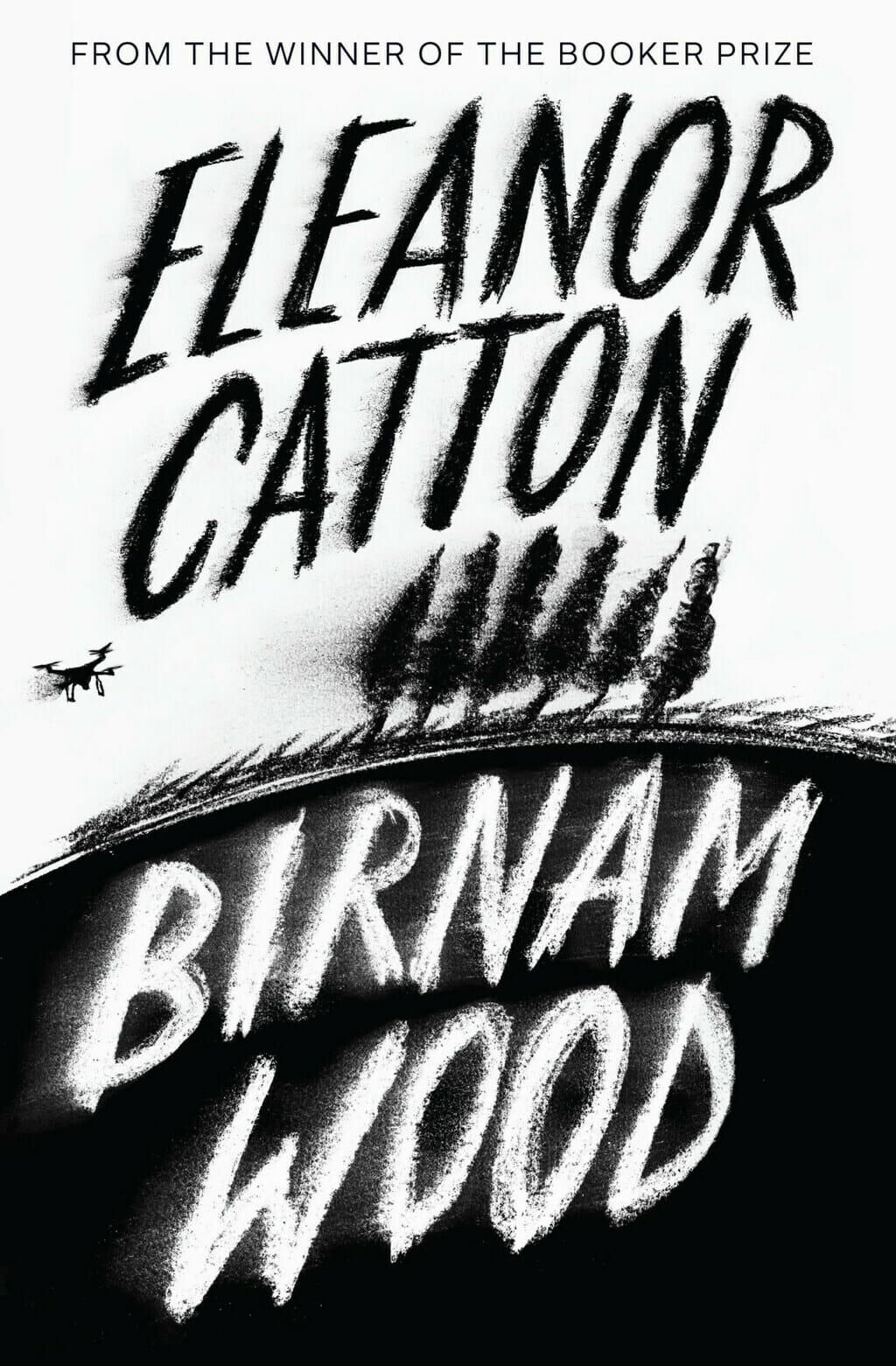
One of the delights of Birnam Wood is how the fictional elements of character, structure, logic, telling – those that Catton admires in Austen – are so remarkably synthesized. Catton is generous about discussing the nuts and bolts of how she puts the apparatus of the novel together.
‘I always begin with an ending in mind, but without any idea of how I’m going to get there.’ And yet, she surprises herself along the way as she writes: ‘I don’t like to get ahead of the reader, so if something unexpected happens, it was probably unexpected to me as well.’
Also occurring up front for Catton are the ideas or themes behind the work. ‘I have a sense of the questions I want to ask.’ In the case of Birnam Wood, Catton reveals her Macbeth-ish design, whereby every character could be Macbeth – and therefore a villain, ‘though of course none of them would see themselves that way.’ Each character could also be Lady Macbeth, and the witches, and a kind of Birnam Wood. ‘We’re all hopelessly polarized, but nobody ever seems to think that they’re the one who needs to change.’ In short, the brew of the book is how it explores Catton’s initial questions.
Catton has been praised for her gem-like sentences, and Birnam Wood is no exception. Yet where The Luminaries mimics beautifully a formal 19th century tone, Birnam Wood is distinctly contemporary. On this modern-day voice, Catton observes, ‘I think it’s important to remember that your reader is always situated in the present. Your book is going to be read now, whether it is set in the present, the future, or the past.’ According to Catton, there’s a responsibility that goes with speaking to and understanding the present. Birnam Wood started life set in an ‘alternative present’ or even a near future. But changes to laws around foreign ownership of land under Jacinda Ardern’s government changed the implications for the plot, so back it went to pre-2017. ‘It’s interesting how much the political conversation has shifted even since then. The word ‘woke’, for example, was in currency in 2017 but hadn’t yet been weaponized in the way that it has been since. I had to be careful not to be anachronistic.’
‘I think it’s important to remember that your reader is always situated in the present. Your book is going to be read now, whether it is set in the present, the future, or the past.’
The novel is told through the point of view of several characters, right up in their close, third-person grill, but each one realistically differentiated. Catton admits finding it hard to inhabit the world view and sound of billionaire Lemoine, the ‘Musk’ character. ‘I had to psych myself up to be able to enter his state of mind, and his sections took me much longer to write than the others. I often work in coffee shops, and I am told that I make the most peculiar faces while I am writing, scowling and smirking and looking aghast and quavering with emotion and so on. When I was writing Lemoine, I was conscious of the fact that my whole posture would change: my chin would lift and my shoulders would go back and I’d feel more cocksure and unrepentant. It felt very close to acting; maybe it was a form of acting.’
In the end, says Catton, all the characters have a ‘little piece’ of her in them, and she sees that as being important in preventing caricature.
Birnam Wood presents a believable fictional world, partly through its rich use of contemporary detail. One of those is technology, in particular surveillance. Whether it’s a threatening drone, old-fashioned binoculars, or someone peeping from behind a tree, who’s watching whom is a gripping motif in the story. Once again, Catton cites the research that inspired her – We Are Bellingcat: An Intelligence Agency for the People, by Eliot Higgins. Catton observes: ‘We conduct petty surveillances on one another all the time. It’s oppressive—and we’re totally addicted. I sometimes catch myself thinking that other people spend far more time on their phones than I do. They’re probably thinking the exact same thing about me.’
Information about gardening (because the Birnam Wood group are gardeners, of course), comes, from Catton’s admission, from books. ‘I am a hopeless gardener—though I lived in Mount Eden in Auckland for a few years, and the volcanic soil was so rich and amazing that I was fooled into thinking I had a talent for it.’ She devoured garden guides, survival handbooks and took lots of notes. ‘I only ended up using a fraction of the research in the novel, but that’s always the way. It’s about building up a sense of authority more than anything else.’
Like The Luminaries, Birnam Wood is set in Te Waipounamu / The South Island, the place of Catton’s childhood. The landscape is portrayed vividly and specifically, with knowledge of the geography. Catton reveals that the novel she has recently started writing, Doubtful Sound, is also set in Te Waipounamu. She suspects she doesn’t feel confident to set a book anywhere else, perhaps through a sense of ‘permission’. ‘I live in England now, so maybe that will change.’
As Catton discusses, her life has changed in more ways than one. ‘Since having a baby I’ve had to become a lot more disciplined, both as a writer and as a reader. The hours I have to myself are so precious now.’ She notes ruefully: ‘I’m closer now to Lady Darvish than to Mira!’
My final question is to ask if Birnam Wood is saying ‘Beware’, to which Catton replies, ‘I think every good novel is a warning, so I hope so!’
This year, Catton will return to New Zealand for an events tour.



